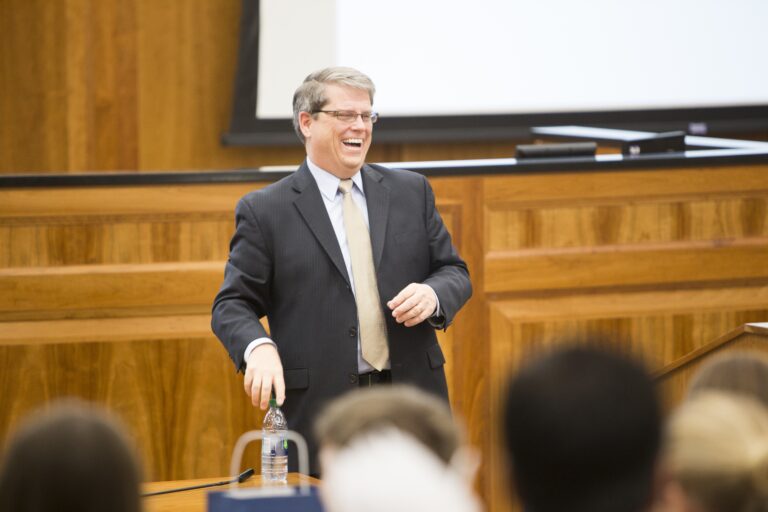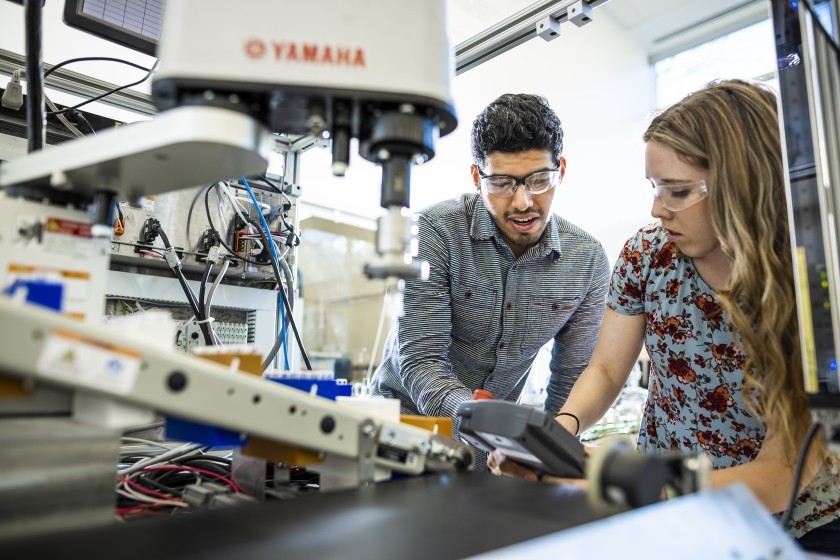College of Fine Arts and Communications

The word “trolls” no longer only means the green, lumpy and grumpy mythological character. Internet trolls, people who antagonize others virtually, have given the word a whole new meaning. Fascinated by their character, BYU professors Pamela Brubaker and Scott Church set out to discover why trolls exist and what makes them tick. They focused on Reddit users in particular, surveying 400 users to match certain personality traits. A common triad was found in online trolls: narcissism, Machiavellianism and psychopathy. This combined with the most important trait schadenfreude, or finding pleasure in another person’s misfortune, creates a troll.
“They are more concerned with enhancing their own online experience rather than creating a positive online experience for people who do not receive the same type of enjoyment or pleasure from such provocative discussions,” Brubaker said.
The study also found that people who are outspoken on the internet are not linked with being trolls. Sharing one’s opinions does not necessarily mean someone is inclined to bully or harass others for their own pleasure.
“Digital media gives us the power to connect with people who have similar and different ideas, interests, and experiences from our own. As we connect with people online, we should strive to be more respectful of others and other points of view, even when another person’s perspective may not align with our own,” Church said. “Each of us has the power to be an influence for good online. We can do this by exercising mutual respect. We can build others up and applaud the good online.”
J. Reuben Clark Law School

D. Gordon Smith, BYU Law dean, is the first faculty member to be appointed to the Ira A. Fulton Chair in the J. Reuben Clark Law School. Smith has been the school’s dean since 2016. He helped create LawX which helps people expunge their records and has worked closely with the Utah Supreme Court over the years.
The chair position was created in June 2020 and is assigned to faculty members who show exceptional teaching and scholarship. Smith was nominated by a committee of faculty who felt he was long overdue and well deserving for the position.
“It is an honor to be appointed to this chair named after someone I greatly respect as a businessman, philanthropist, and friend,” Smith said. “I feel a great responsibility to carry on the good work associated with the Fulton name.”
Ira A. Fulton College of Engineering

BYU manufacturing students won’t be reading from a textbook for their classes. Instead, a new curriculum using smart manufacturing will help them learn about real-world problems and solutions. Smart manufacturing intersects data and manufacturing by logging data from physical equipment and storing it into a digital system. The physical and digital systems can communicate to each other no matter the digital language because of smart manufacturing’s ability to translate.
Students can interact with the tools and their abilities to make smarter and more educated decisions when manufacturing. The curriculum was created by BYU manufacturing engineering professor Yuri Hovanski, making BYU the first university to use smart manufacturing in a classroom setting.
“A lot of people will build a research program and then try to create curriculum that supports their research program,” Hovanski said. “We build curriculum that brings students up to a level where we can do meaningful research…They’re able to go do things that they wouldn’t be able to do at another university.”




